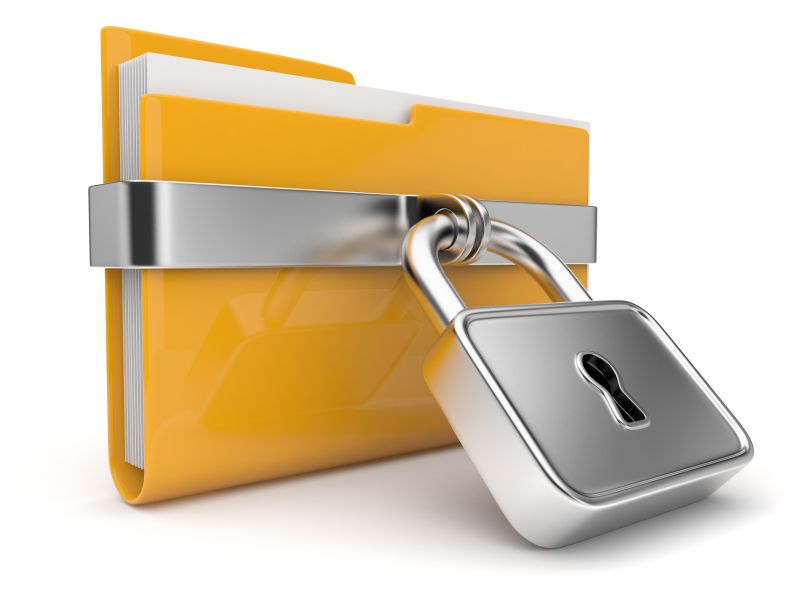Employee records management plays a central role in every business. Apart from the legal recordkeeping obligations that employers have, employee records are valuable resources that help guide and improve important decision processes, from hiring to compensation, performance reviews and beyond.
5 Ways Electronic Employee Records Make You Awesome at Your Job
Topics: HR
How Document Indexing Works And Why You Need to Consider Using It
The average employee spends 40% of their time searching for the information they need to do their job. This is often the result of poor document retrieval systems, file mismanagement, and similar organizational inefficiencies. Document indexing is the process that is implemented within businesses to help improve document searchability, thus reducing the time it takes for workers to find the documents they need. In this post, we will describe how document indexing works and give a breakdown of how it can help your business save time and money and improve productivity.
4 Tips on Developing an Effective Employee Retention Strategy
Retaining talent can be expensive, but losing talent will end up costing your business even more money – not to mention the other negatives that accompany people leaving, such as talent gaps, lost productivity, and the time and resources exhausted attracting new talent. Below are some tips to help you develop an effective employee retention strategy that will help you leverage the most vital component of your business: your people.
Legal compliance should be a priority for all businesses and organizations operating in Canada. Noncompliance with federal legislation can be severely detrimental, resulting in fines and other penalties that can make a dent financially and even affect operational processes. Below are 3 simple rules that you should follow in order to ensure legal compliance for your business.
Topics: Are digital images legal, human resources
How Human Resources Compliance Checklists Can Keep You Out of Trouble
Human Resources compliancechecklists are instrumental in ensuring that organizations stay well within the laws governing employment in Canada.
They help not only prepare for audits, but also provide a means to monitor whether business processes are operating efficiently and resources are not being wasted or used ineffectively.
Ultimately, HR compliance checklists are an integral component of more comprehensive HR management systems that serve the dual purpose of boosting business efficiencies and staying compliant.
Below are a few of the ways that Human Resources compliance checklists can help keep your organization out of trouble – both legally and operationally.
Topics: HR, human resources
8 Facts About Retaining Employee Records That'll Keep You Up at Night
Employee records management is an important aspect for any organization, regardless of industry or size. Since people are the most important element to the success of a business, effective management is criticaal – and the purpose of creating and retaining employee documentation is to improve the management of employees.
Essentially, employee records provide a single source where data about each employee is stored, and this information is used to help guide HR decision processes to the benefit of the organization, such as hiring, promotions, compensation and even termination.
Topics: HR
Document security has long been a concern of organizations. Regardless of format or whether analog or digital, business records, sensitive data and proprietary information have needed to be secured in order to protect the interests of the business. As the need for such security has expanded with the introduction of the digital age, more sophisticated document security management systems have been developed, boasting more complex methods of securely storing and retaining myriad business documents.
6 Reasons Why You Should Be Talking About Employee Privacy Policies
Particularly now when data security is such a salient issue, privacy has become a huge concern for businesses of all types, from small operations to large enterprise organizations. Consumers need to be able to trust businesses with their private information, and if that trust isn’t established – or even worse, if it’s breached – people will take their business elsewhere.
The value of consumer privacy, then, is very well understood. But have you ever considered employee privacy? It is equally as important to the well-being of an organization as is consumer privacy, and having an employee privacy policy in place is an important way to guide the infrastructure of privacy throughout your organization. Here are 6 reasons why you should be talking about employee privacy policies if it’s not on your radar.
Topics: HR, human resources
How Automating HR Processes Can Keep You Out of Trouble
 The primary argument forwarded to make a case about why HR automation software is a prudent business decision is efficiency: such a system improves manual, time-intensive processes and ultimately saves organizations money. Less commonly discussed, but equally important, is that these systems allow businesses to adhere to regulatory and organizational requirements. Boosting profitability is obviously a valid goal, but if a company or its employees fail to adhere to legislative or organizational rules, they many find themselves in hot water.
The primary argument forwarded to make a case about why HR automation software is a prudent business decision is efficiency: such a system improves manual, time-intensive processes and ultimately saves organizations money. Less commonly discussed, but equally important, is that these systems allow businesses to adhere to regulatory and organizational requirements. Boosting profitability is obviously a valid goal, but if a company or its employees fail to adhere to legislative or organizational rules, they many find themselves in hot water.
Topics: office automation, HR
The Unconventional Guide to Electronic Records Management for HR
 Human Resource management is a multi-faceted organizational challenge. Along with talent acquisition and retention, HR departments are faced with the tasks of electronic HR records management, meeting government regulated compliance standards, as well as meeting time sensitive payroll processes.
Human Resource management is a multi-faceted organizational challenge. Along with talent acquisition and retention, HR departments are faced with the tasks of electronic HR records management, meeting government regulated compliance standards, as well as meeting time sensitive payroll processes.
With so many responsibilities falling onto the HR department, inefficiencies tend to surface, particularly in regards to paperwork and administrative burdens, delayed payment, review and approval processes, and even in the hiring process itself. These inefficiencies stem primarily from a common underlying issue: outdated HR records management.
For organizations wishing to curtail their HR records management challenges, the following advice is a step in the right direction. Here is our unconventional guide to electronic records management for HR.
Topics: HR, Electronic Records








